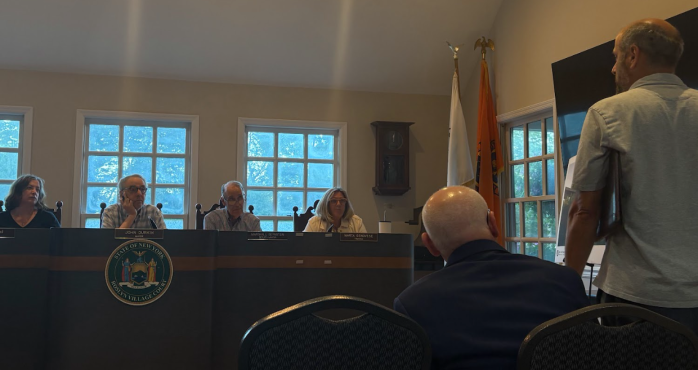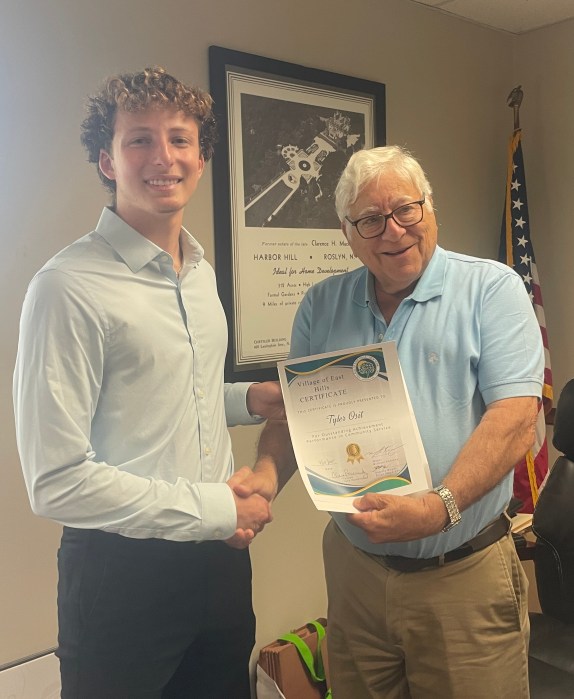
A group of educators from the Roslyn Enrichment Center are working on a top-down revision of their approach to teaching that they say may revolutionize the way children learn if their model proves successful.
Enrichment center teachers Robert Amato and Marina Terentieva have joined forces with artificial intelligence and education expert Anatoly Altschuler to develop an educational model to bring students up to speed with their international counterparts.
“I observed that our biggest societal problem is education,” Altschuler, an industrial consultant and theoretical physicist by background, said. “A lot of my colleagues are extremely concerned about the state of education in school and in college. What we are observing is few people, Americans especially, interested in high education, in going deep into subject matter of arts and sciences.”
Altschuler’s claims of lagging education are backed up by international studies. When students from the United States took the 2015 Programme for International Student Assessment (PISA) exam, the most recent test for which results are available, they placed 38th out of 71 countries in math, 24th in science and 25th in reading literacy.
The three-pronged approach Altschuler and his colleagues are designing would first focus on developing IQ and emotional intelligence in children from as early an age as possible, from 8 to 13 months old.
“We think that the basic, fundamental abilities of the human brain start very early,” Altschuler said. “Of course, it cannot be language or math initially, but certainly there are fundamental things like spatial reasoning, pattern recognition and visual abilities that we could improve in developing at a very early age.”
The model also calls for education to be integrated with technology as much as possible, making full use of digital-based learning to improve the education process.
“The most modern technology needs to be leveraged in education,” Altschuler said. “We’re talking about placing specific knowledge in that well-developed human brain. That could use a lot of help, not simply from computerization. We feel that schools do not use the entire potential of modern technology.”
In tandem with leveraging technology, the third prong of the approach involves using artificial intelligence and big data analytics to tailor educational services more efficiently.
“Artificial intelligence is important because it greatly expands the human capacity to process information,” Altschuler said. “We are planning to use Google and Amazon services, since they offer their platform close to free for educational organizations, to do very elaborate and sophisticated analytics on data we collect.”
For this aspect, Altschuler drew on his experience as a consultant with digital education companies and marketing firms, which he said make better use of technology-aided analysis than schools. By analyzing data from individual students and school districts, educators could see where their lessons falls short and design curriculums to compensate for those deficiencies.
While the team isn’t sure when their model will be complete and ready for implementation, they intend to start the process small with a handful of students from the Enrichment Center. If they see success, they hope to roll out the program with private schools and corporations.

































